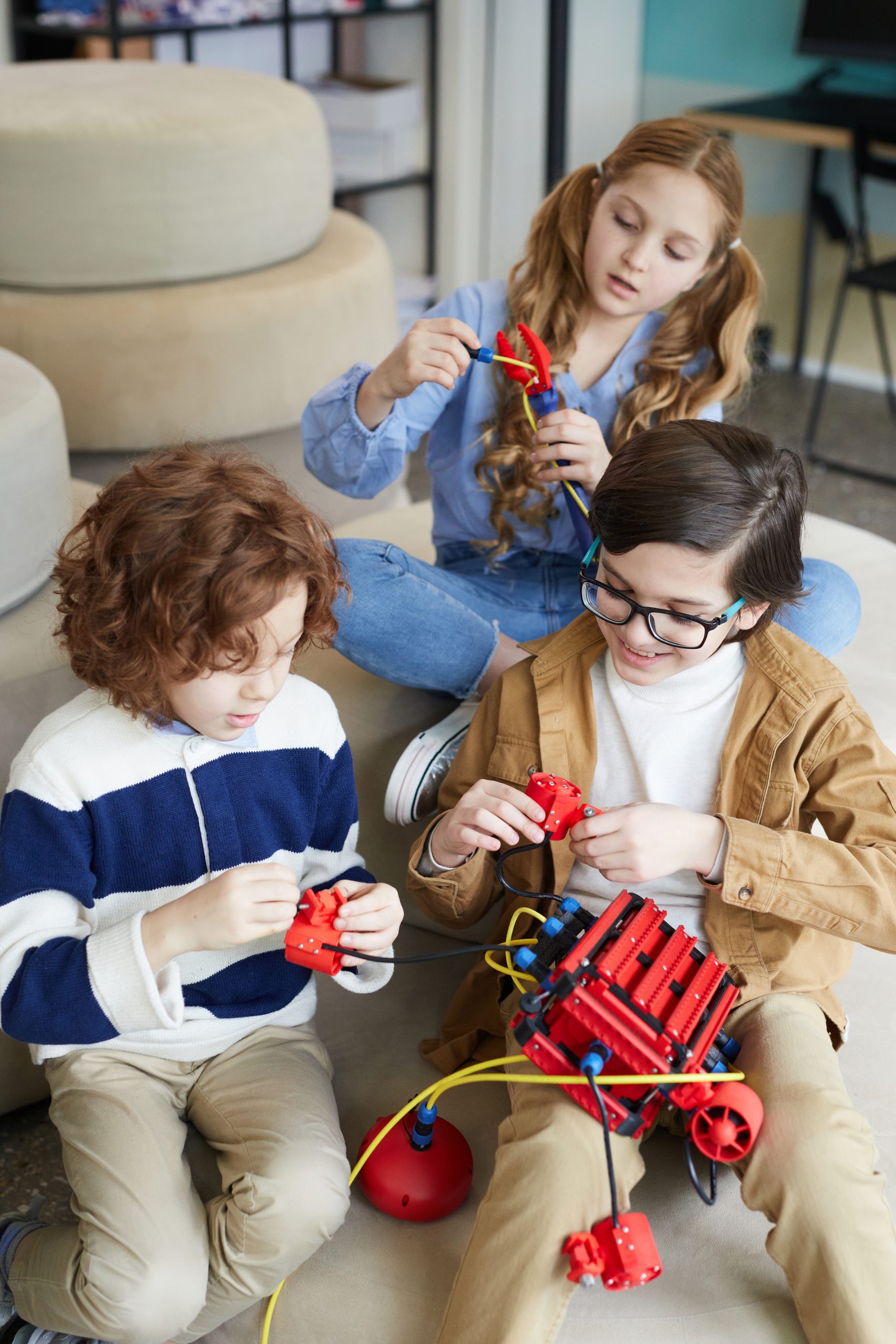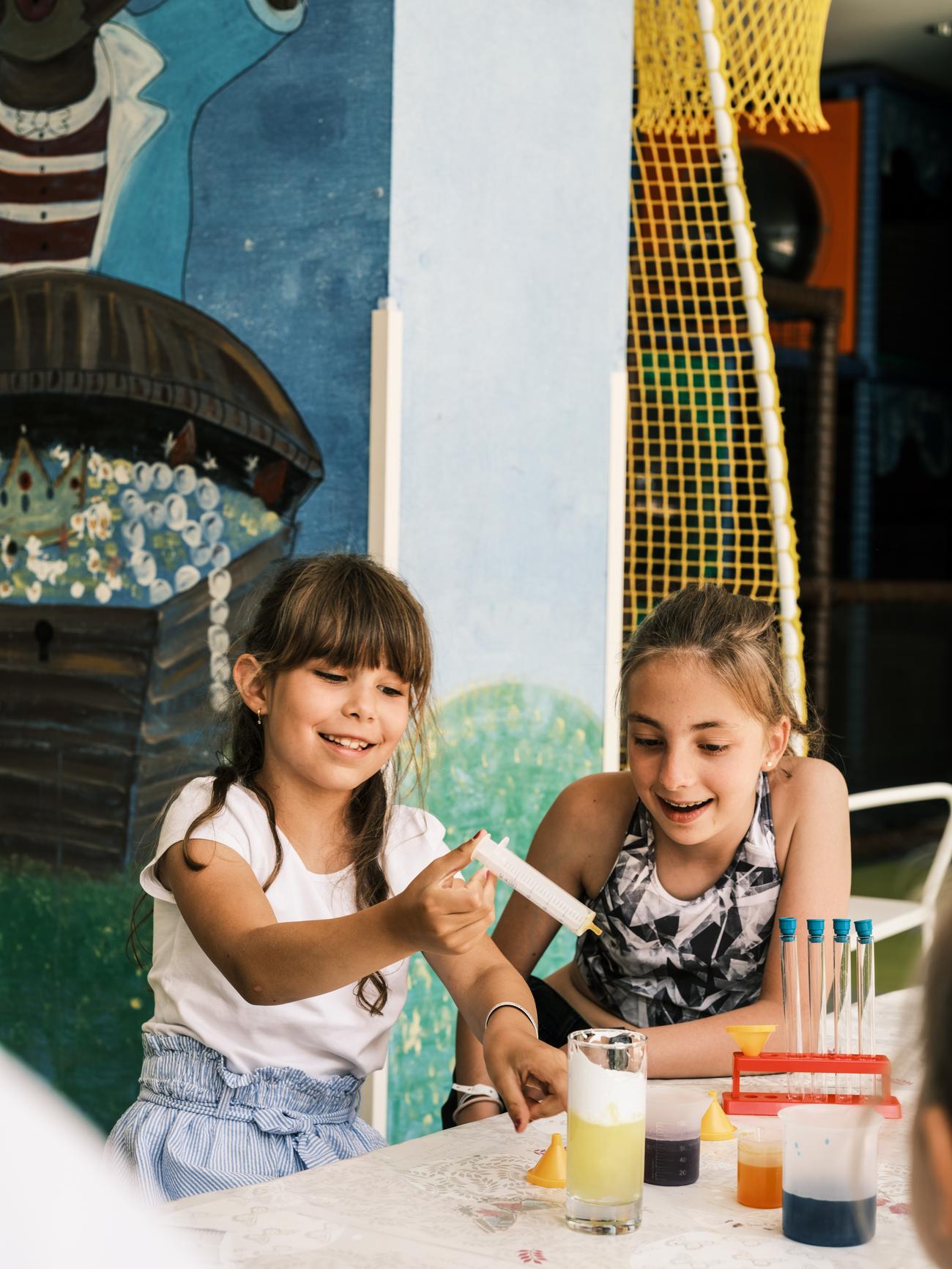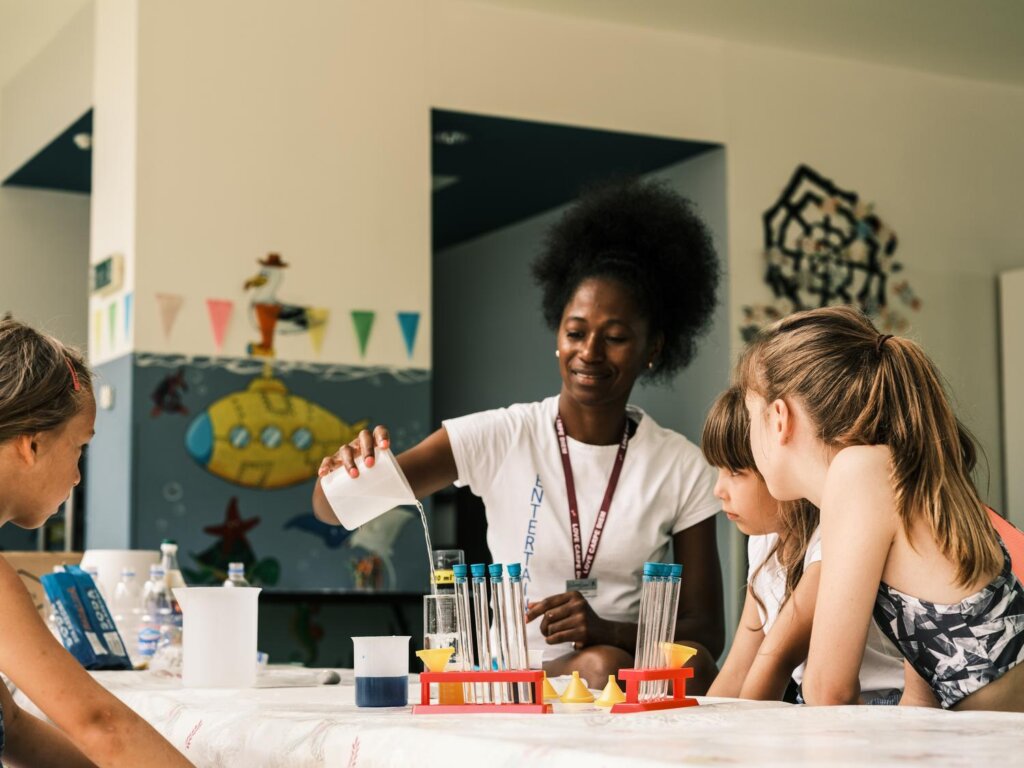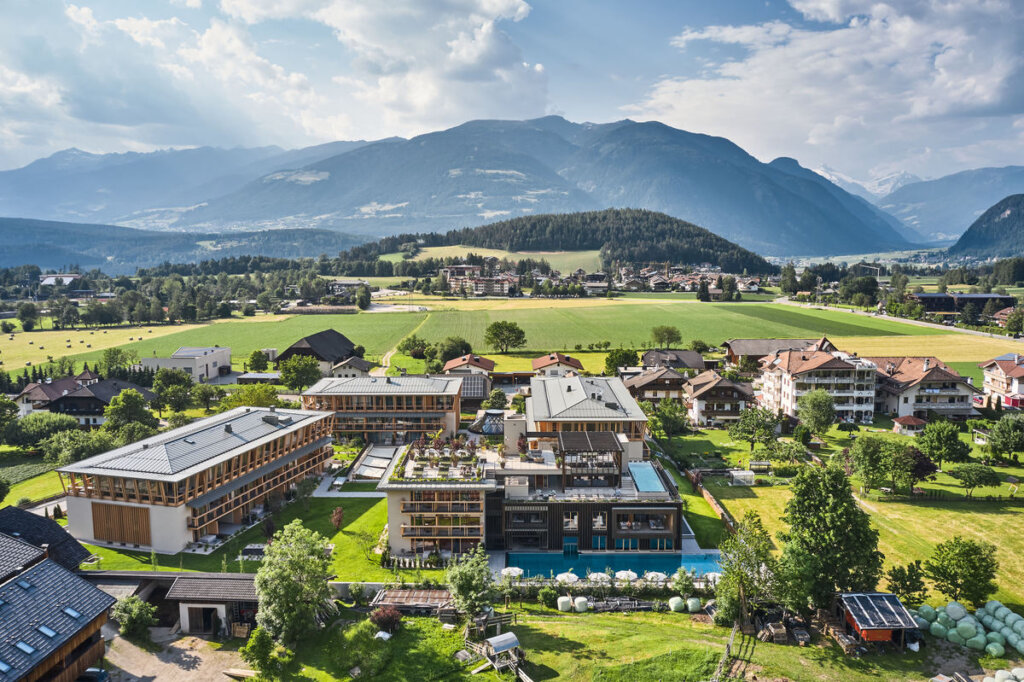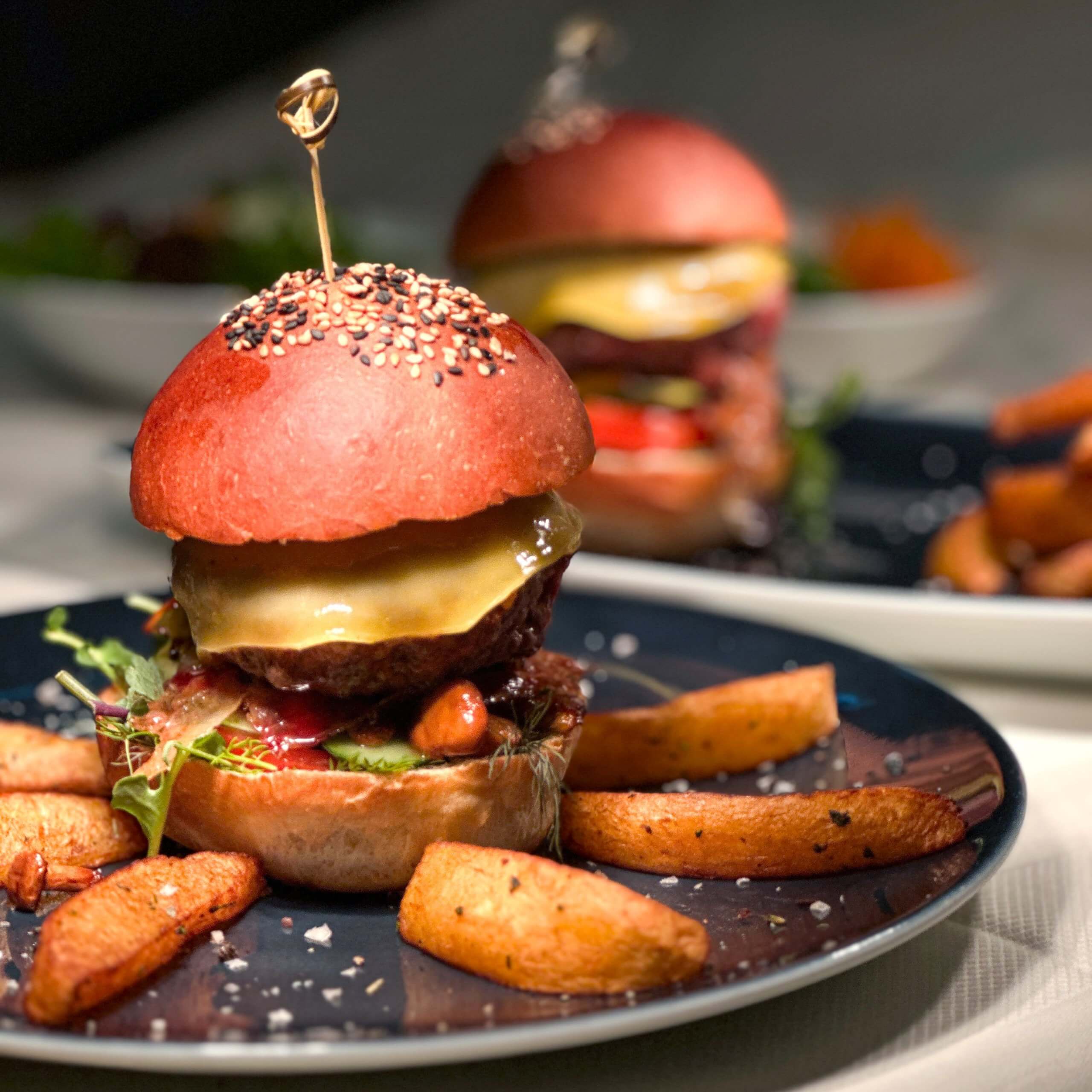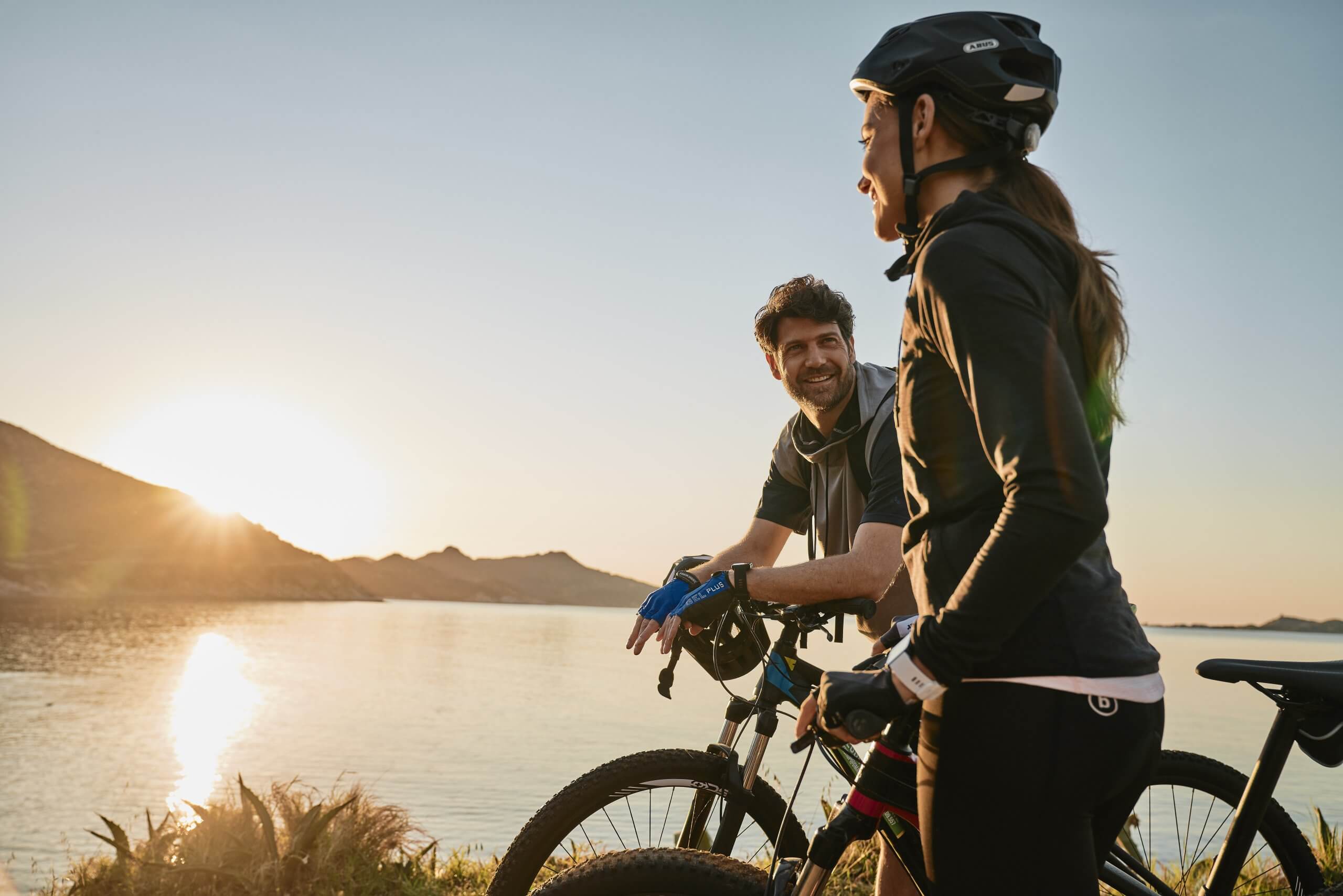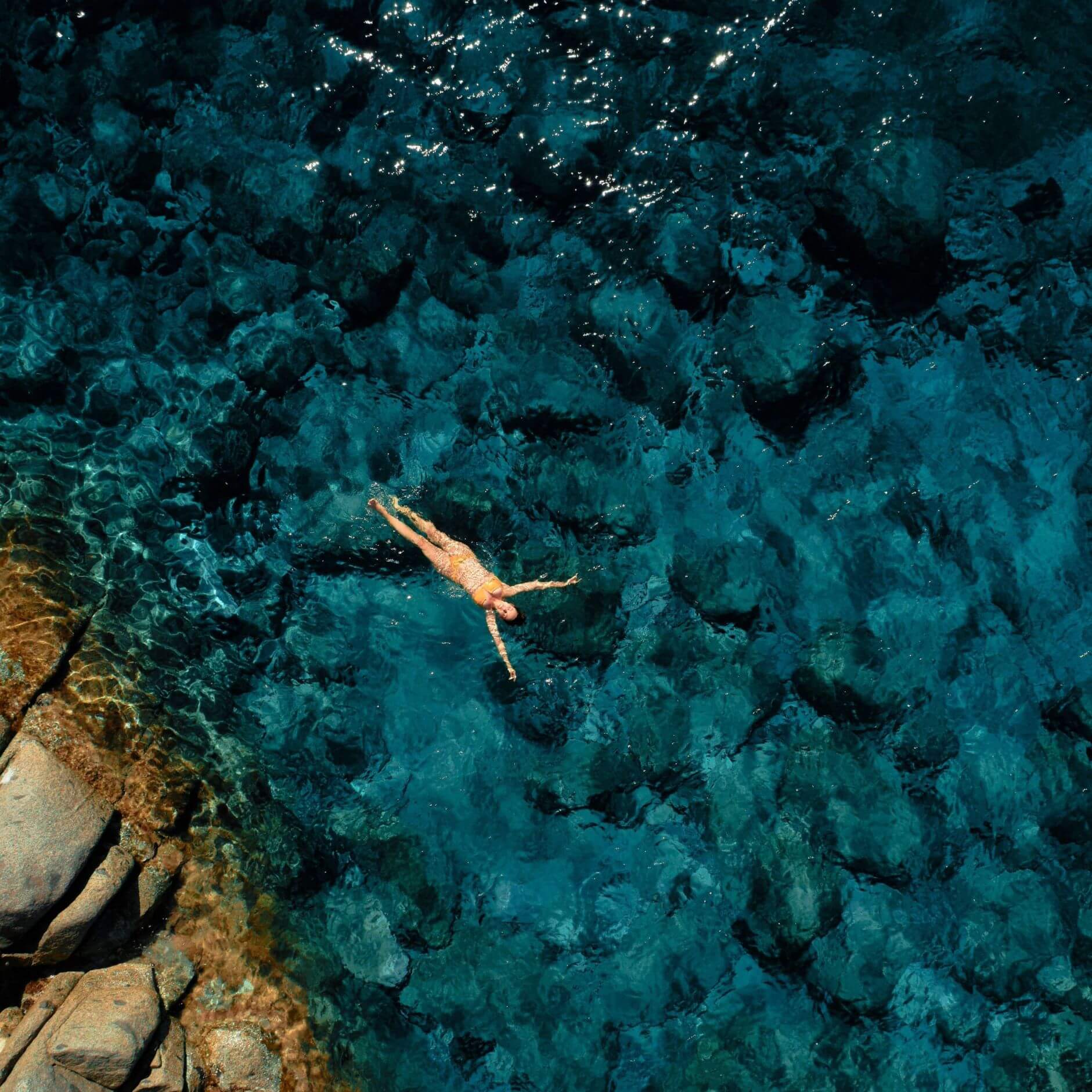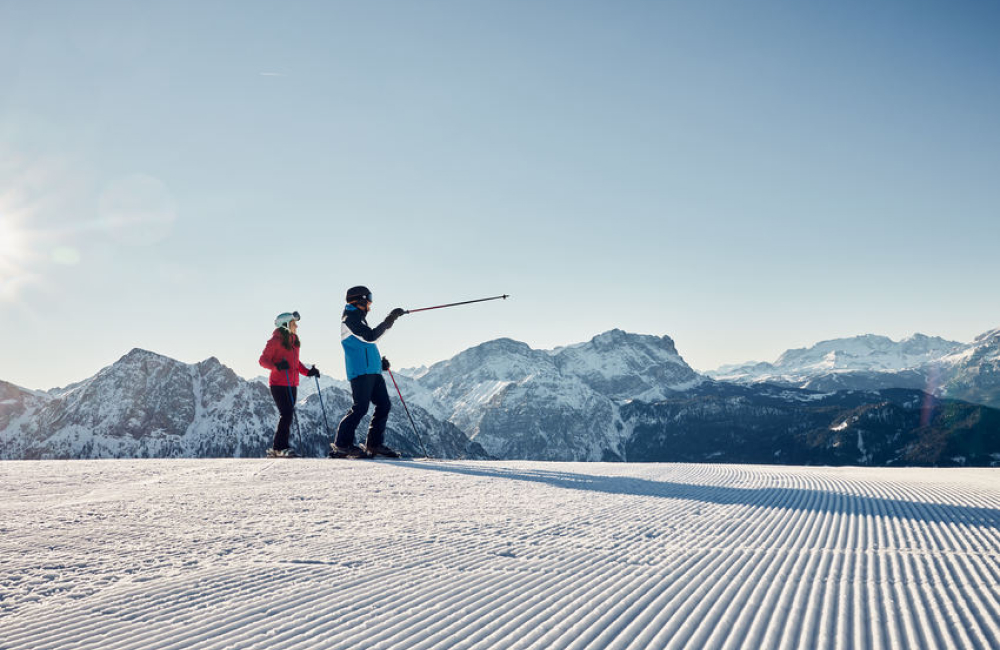The Falkensteiner animation team has been focusing on entertaining and playful knowledge transfer for a long time when creating the children’s programme and offers its guests an exciting and at the same time child-friendly edutainment programme on a wide variety of topics in all family hotels. For example, the edutainment at the Falkensteiner Family Hotel Diadora in the 5* Resort Punta Skala in Croatia is themed around marine biology and at the new Falkensteiner Hotel Montafon, which will open at the beginning of 2023, the topic of sustainability is at the top of the agenda.
Little researchers all the way
At the Carinthian family hotels Falkensteiner Hotel Cristallo, Falkensteiner Club Funimation Katschberg and Falkensteiner Hotel Sonnenalpe, the focus is on teaching STEM subjects – mathematics, information technology, science and technology. For this reason, the so-called “Science Camps” started for the first time in August in these hotels. The aim of the science camps is to combine learning with fun and to give children an understanding of the profession of the researcher by carrying out exciting experiments. For young guests aged between four and twelve, this means three days of hands-on science, combined with a relaxing stay for parents. The programme includes exciting experiments from the fields of chemistry, physics, biology and mathematics, which are carried out together with the on-site animation team. Thanks to the age-appropriate preparation and the appropriate duration of the units, the children’s interests in the natural sciences are awakened in a playful way without leading to boredom or excessive demands.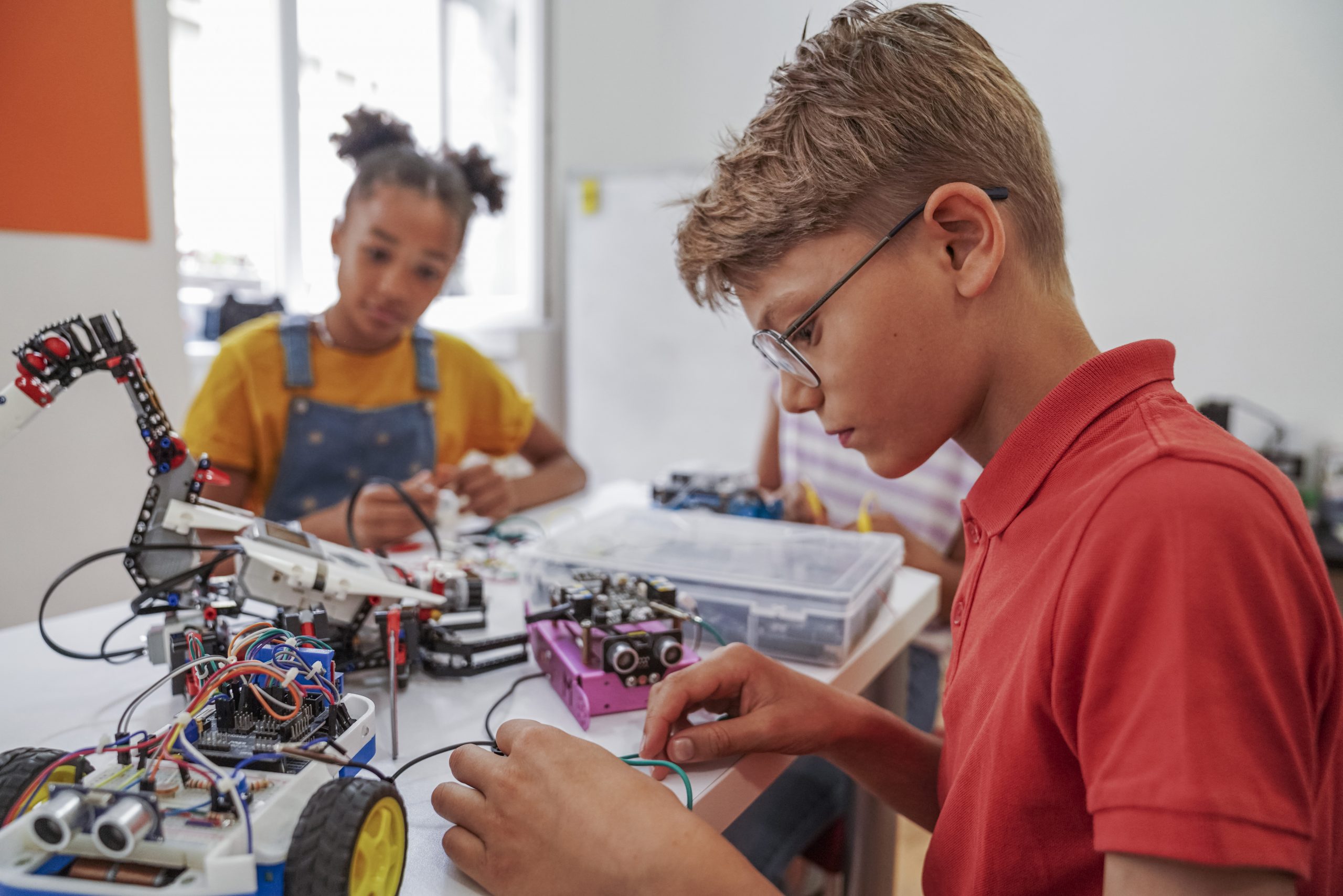
Strong partners, strong camps
For the Science Camps in Carinthia, Falkensteiner works together with the Science Pool association. This is considered a pioneer in the field of (pre-)science education and offers various formats and offers for science-hungry children. From science schools and clubs to the Long Night of Research to the Science LABS and the Museum of Nerdiness in Vienna. In the Science Pool Institute for (Pre-)Science Education, many years of experience are passed on to educators, teachers and students, but also to adults interested in science. (www.sciencepool.org)2 Big Bang experiments to do at home
A special highlight of the Science Camps is the following 2 experiments, which are ideal to try out at home:The flying egg dish
In the challenge called “The flying egg dish“, the children build a protective construction around an egg and then let it fall to the ground from a height of at least 2 metres. Regardless of whether the result is an intact egg or an egg dish – maximum building fun is guaranteed! The permitted tools for carrying out the experiment are a 1.5 metre-long strip of adhesive tape, scissors, a 1.5 metre-long piece of string, 20 straws, 1 raw egg and a piece of A4 paper. You are welcome to work in small groups or alone. The winner is the one whose egg safely survives the flight. The background to this experiment is the so-called “Egg Drop” competitions, which are now held all over the world and provide great challenges and at the same time “expert fun” for young and old.